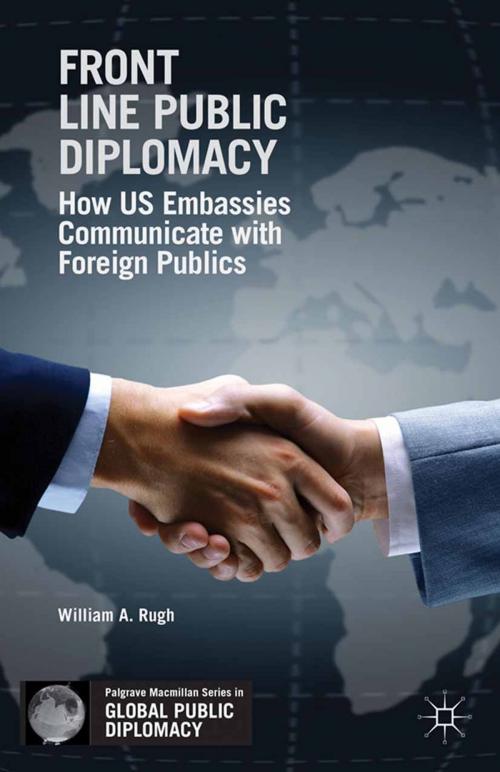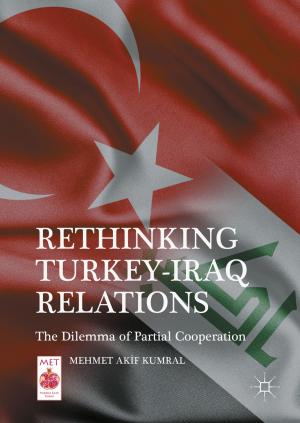Front Line Public Diplomacy
How US Embassies Communicate with Foreign Publics
Nonfiction, Social & Cultural Studies, Political Science, International, International Relations, Reference & Language, Reference, Social Science| Author: | W. Rugh | ISBN: | 9781137444158 |
| Publisher: | Palgrave Macmillan US | Publication: | August 20, 2014 |
| Imprint: | Palgrave Macmillan | Language: | English |
| Author: | W. Rugh |
| ISBN: | 9781137444158 |
| Publisher: | Palgrave Macmillan US |
| Publication: | August 20, 2014 |
| Imprint: | Palgrave Macmillan |
| Language: | English |
This book presents the first-ever close and up-to-date look at how American diplomats working at our embassies abroad communicate with foreign audiences to explain US foreign policy and American culture and society. Projecting an American voice abroad has become more difficult in the twenty-first century, as terrorists and others hostile to America use modern communication means to criticize us, and as new communication tools have greatly expanded the worldwide discussion of issues important to us, so that terrorists and others hostile to us have added negative voices to the global dialogue. It analyzes the communication tools our public diplomacy professionals use, and how they employ interpersonal and language skills to engage our critics. It shows how they overcome obstacles erected by unfriendly governments, and explains that diplomats do not simply to reiterate set policy formulations but engage a variety of people from different cultures in a creative ways to increase their understanding of America.
This book presents the first-ever close and up-to-date look at how American diplomats working at our embassies abroad communicate with foreign audiences to explain US foreign policy and American culture and society. Projecting an American voice abroad has become more difficult in the twenty-first century, as terrorists and others hostile to America use modern communication means to criticize us, and as new communication tools have greatly expanded the worldwide discussion of issues important to us, so that terrorists and others hostile to us have added negative voices to the global dialogue. It analyzes the communication tools our public diplomacy professionals use, and how they employ interpersonal and language skills to engage our critics. It shows how they overcome obstacles erected by unfriendly governments, and explains that diplomats do not simply to reiterate set policy formulations but engage a variety of people from different cultures in a creative ways to increase their understanding of America.















